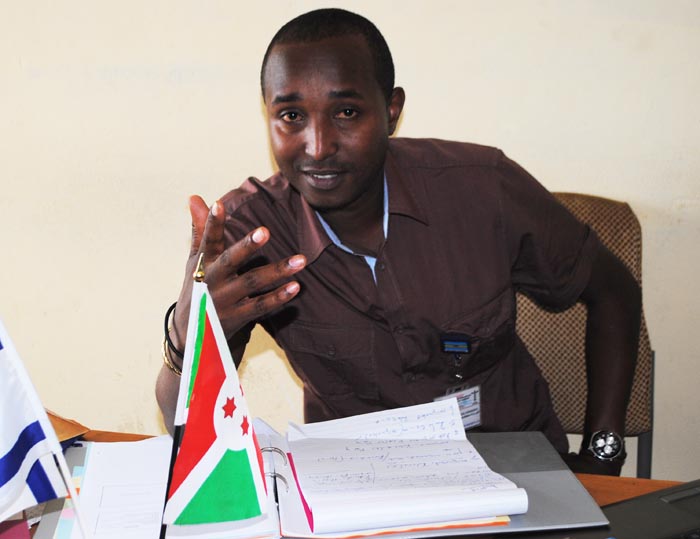The deadline for signing the Economic Partnership Agreement (EPA) between the European Union and the East African Community passed on Wednesday October 1st, without an approved contract.–Yves Didier Irakoze and Jojanneke Spoor

Eric Ntangaro, Executive Secretary for the International Transporters Association of Burundi © Iwacu
Despite news reports that the EAC had signed the EPA ahead of the deadline, an EU representative in Burundi confirms that the agreement has not been signed yet, nor is it clear when that will happen.
Burundi now falls back on the Everything But ArmsAgreement. This agreementbetween the European Union (EU) and the Least Developed Countries (LDC’s)was ratified in 2001 and provides poor countries with free access to the European Market.
The consequences for missing the deadline are highest for Kenya, the only non-LDC country in the East African Community. Kenya will move to the EU’s standard Generalised Scheme of Preferences for developing countries, which means that there will be tariffs on some products originating in Kenya, such as cut flowers and vegetables. Once the EPA negotiations are concluded, Kenya will be able to return to the free access regime.
The main objective to sign the trade agreement is to promote trade with the EU andbenefit from duty free and quota free market access. This may help individual businessmen as well as the country to boost export, as removing tariff barriers make it more economically viable to export additional products to the EU.
The EU Ambassador to Tanzania, Filiberto Ceriani Sebregondi, said on Wednesday that trade has an increasingly prominent role in the partnership between the EAC and the EU. “That was clearly shown at the Fourth Africa-EU Summit last April where the parties declared that it is time for a fundamental shift from aid to trade and investment as agents of growth, jobs and poverty reduction.”
Eric Ntangaro, Executive Secretary for the International Transporters Association of Burundi, agrees and mentions that the EPA could help Burundian businessmen boost their import and export. However, most of them don’t know that products originating from EAC member states are free from import and export taxes. He adds that sometimes businessmen pay nevertheless, because they don’t possess the certificate of origin that testifies that the products are from an EAC member state. Ntangaro advocates for more sensitization on the trade agreements. The EAC should facilitate workshops that train clearing agents and businessmen on rules and regulations concerning taxes.
The EPAs are trade and development agreements negotiated between the EU and African, Caribbean and Pacific regions that are engaged in a regional economic integration process.EPA’s go beyond conventional free-trade agreements, focusing on development, taking account of the socio-economic circumstances and including co-operation and assistance.The EU has recently concluded EPA negotiations with West Africa and the Southern African Development Community. Officials at the EAC Secretariat were not available to comment on the current state of the EPA negotiations for East Africa.



















 IWACU Open Data
IWACU Open Data

